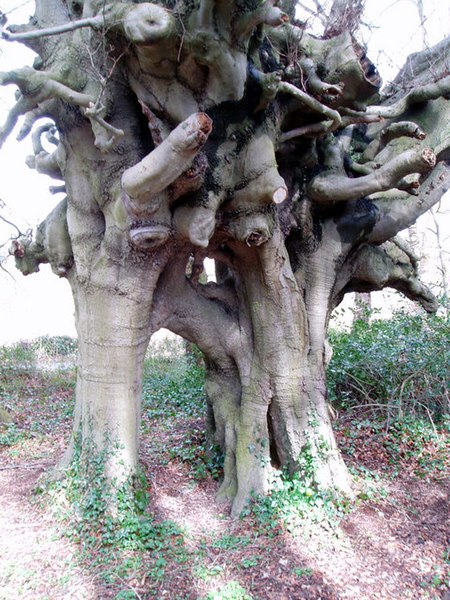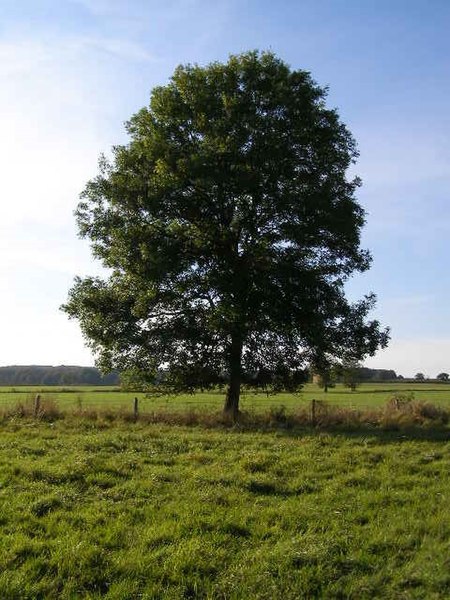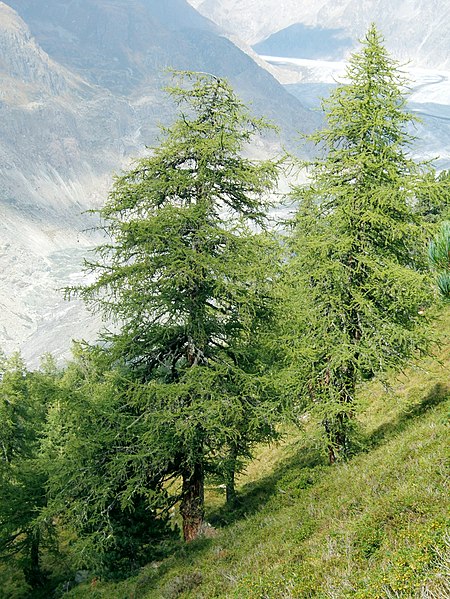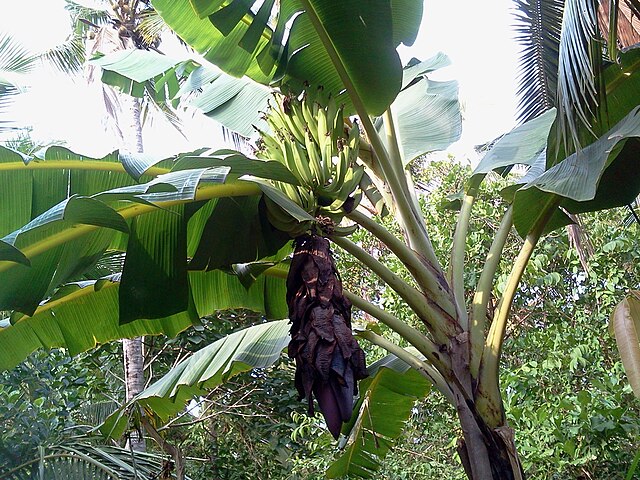Inosculation is a natural phenomenon in which trunks, branches or roots of two trees grow together in a manner biologically similar to the artificial process of grafting. The term is derived from the Latin roots in + ōsculārī, "to kiss into/inward/against" or etymologically and more illustratively "to make a small mouth inward/into/against"; trees having undergone the process are referred to in forestry as gemels, from the Latin word meaning "a pair".
Beech tree trunks conjoined
A "husband and wife" blackthorn (Prunus spinosa) at Lynncraigs farm, Dalry, North Ayrshire, Scotland.
The John Wesley tree
Acer pseudoplatanus showing inosculation
In botany, a tree is a perennial plant with an elongated stem, or trunk, usually supporting branches and leaves. In some usages, the definition of a tree may be narrower, including only woody plants with secondary growth, plants that are usable as lumber or plants above a specified height. In wider definitions, the taller palms, tree ferns, bananas, and bamboos are also trees.
Common ash (Fraxinus excelsior), a deciduous broad-leaved (angiosperm) tree
European larch (Larix decidua), a coniferous tree which is also deciduous
Tall herbaceous monocotyledonous plants such as banana lack secondary growth, but are trees under the broadest definition.
The Daintree Rainforest








